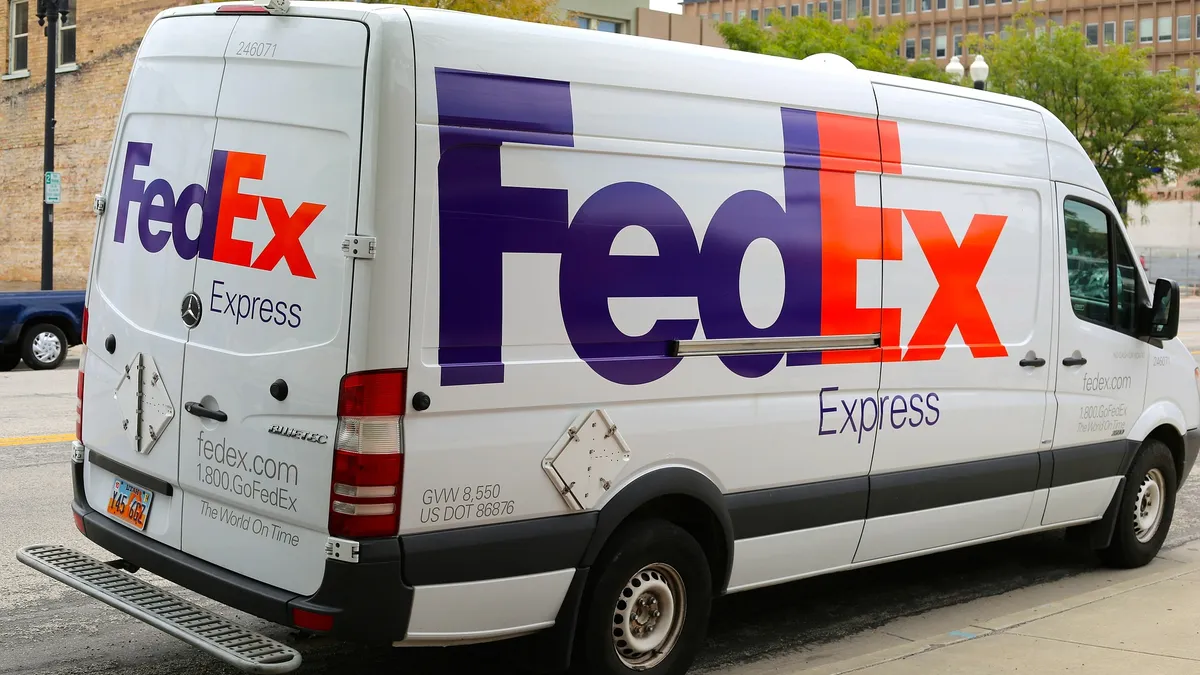Dive Brief:
- FedEx is forecasting "another record year with four Mondays during peak expected to be among the busiest days in the history of FedEx," said Executive Vice President and Chief Marketing and Communications Officer Raj Subramaniam on a conference call discussing the company's first-quarter earnings.
- To handle the increased volume, FedEx has more than 130 automated facilities utilizing robotic unloading, autonomous tugs, yard management systems, geo-fencing and a GPS system.
- Subramaniam wrote off Amazon's delivery service partner network as a threat to record volumes. "While there has been significant media interest in what Amazon is doing to expand their in-source deliver capability, this should not be confused as competition with FedEx," he said.
Dive Insight:
Last week, FedEx announced it would continue delivering parcels six days per week year-round permanently, starting after the holiday season this year.
The carrier said that it has been working on building capacity for this move for years, building 15 new hubs and integrating robotics and artificial intelligence into some operations. On an earnings call Monday, FedEx executives offered more specificity about the scale and extent of its efforts to automate.
"It's truly remarkable, you'll hardly see our any employees at all. And the speed to which our package gets through our hubs now is unbelievable. So we're able to handle a lot of volume especially at peak because of all the investments we've made over all the years," said president and chief operating officer Dave Bronczek on the call.
All that automation will come in handy in the ongoing battle among third-party logistics providers (3PLs) for small and medium-sized customers — an expressed target for both FedEx and UPS since smaller customers generally offer better margins per parcel.
"Small and medium segment business has been, is and will be a strong focus for us going forward and we have only accelerated in this regard," said Subramaniam
With tariffs top of mind for businesses and investors, Subramaniam acknowledged that the effect of tariffs is palpable in this contentious trade environment, but assured analysts a very small slice of FedEx's business has been affected thus far.
Shipments between China and the U.S. represent approximately 2% of FedEx's total revenue and tariffs affect less than 10% of that. The new tariffs, announced yesterday and going into effect Sept. 24, will impact roughly 25% of FedEx's China-U.S. business.
Despite those small numbers with regard to FedEx's overall balance sheet, Subramaniam emphasized that the trade war environment can affect commerce more generally and add uncertainty to the global climate.
"It’s very difficult to predict the future course of tariff implementation. We’re monitoring the situation very carefully and we’ll adjust our strategies according to market conditions. Clearly, we continue to support lower trade barriers for all our customers," he said.















